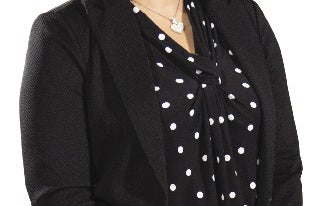As individuals, many of us take little time for reflection. We are always onto the next thing, grinding to become more. How then do we become more, when we don’t know who we are to begin with?
Get Instant Access to This Article
Subscribe to Worcester Business Journal and get immediate access to all of our subscriber-only content and much more.
- Critical Central Massachusetts business news updated daily.
- Immediate access to all subscriber-only content on our website.
- Bi-weekly print or digital editions of our award-winning publication.
- Special bonus issues like the WBJ Book of Lists.
- Exclusive ticket prize draws for our in-person events.
Click here to purchase a paywall bypass link for this article.
As individuals, many of us take little time for reflection. We are always onto the next thing, grinding to become more. How then do we become more, when we don’t know who we are to begin with? When we don’t recognize who we are and how we are centered in society, and our experiences are often dictated by the structures that receive (or don’t) us, how do we show up? Our fast-paced, capitalist society keeps us climbing to get ahead and over-consuming, but we don’t take the time to sit with what we already have and not only appreciate it, but appreciate what we have that others do not. This self-reflection is called checking your privilege.
What would it look like to appreciate what you have and check your privilege, the tools in your toolbox, as they relate to equity and inclusion in business? We all have privilege, but some have more than others. If you are white, imagine you are Black. How would your place in society shift? What would the impact be financially and educationally? How might your career experiences be different? This dichotomy of experience could be interrogated for race, class, gender, sex, sexual orientation, ability, and many other demographic variants.
Equity looks at the problem of who is not able to enter an organization, be supported in the organization, and why their needs are not met. Inclusion focuses on making sure all voices are heard and needs are met (and how to meet them). We can create standard policies that are equitable, and equity must focus on the needs of individuals, in order to meet success. Many organizations have done a good lean into standardized organizational equity, but how will your organization become nimble enough to meet individual equity? Organizations able to do this are going to become the most sought after for employment. This is where standardized human resources practices must interface with more nuanced flexibility to recruit, hire, and retain.
White privilege is a concept fallen victim to its own connotations, and ignites pushback. White people are not used to being defined by their race because whiteness has always been centered, where everyone else is the other. The word privilege, especially for poor, working-class and rural white people, sounds like a word not reflecting their experience, suggesting they have never struggled. This defensiveness derails the conversation. White privilege is not the suggestion white people have never struggled. White privilege is not the assumption everything a white person has accomplished is unearned. Instead, white privilege should be viewed as a built-in advantage.
How are you examining your privilege and equity-mindedness? Are you committed to practicing your values every day? What does that look like? Are you committed to making inclusive and equitable decisions? How do you keep yourself and the organization accountable? Are you learning to get better? Diversity, equity & inclusion work is ever-evolving, and moving the dial does not happen overnight.
Can you become more comfortable with making mistakes? This is a commitment to stomping out fear. Making improvements and starting new initiatives, creating policies, practices, processes, data collection, program implementation, assessment, and focusing on talent acquisition, as they relate to DEI, is not easy, nor a straightforward path, and mistakes will be made along the way. If you can accept this, your fears will dissipate, and the mistakes will lead to greater success.
What tools (privileges) do you have in your toolbox (life) that others do not, and how can you use them to build-up others? What has your journey been like? How would it have been different if you had different tools in your toolbox? What would you have been able to build, and who would you have been able to build up with different tools?
Bonnie J. Walker is the director of equity and inclusion at Worcester Academy, plying this arena in education in Mass. for 16 years. Contact her at bonnie.walker@worcesteracademy.org.

